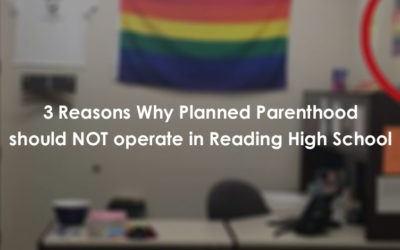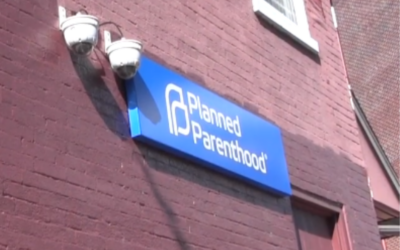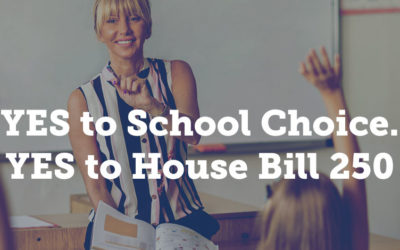Issue
Standards for Explicit Sexual Content in Schools
KEY POINTS
- School Boards are legally permitted to create policy setting standards for preventing age-inappropriate sexually explicit content in their curriculum and library.
- The standard ought not be: “As long as this book doesn’t land us in jail for giving it to a minor, the sexually explicit content is welcome in our curriculum or the school library.”
- Written policy protects students, parents, employees, and the school
and ensures better educational content will fill the finite space in curriculum and in libraries. - Schools should prioritize material that provides rich educational value over material that may provide similar value but also has age-inappropriate sexually explicit content.
- Age-Appropriate policies are not directed at viewpoint and are not banning the book from student possession. They are exercising the schools prerogative to determine what to include in its own library and curriculum.
Standards for Sexually Explicit Content in Schools
Schools must engage in line-drawing for age appropriateness of sexually explicit content in their library and curriculum. Criminal laws are one required line prohibiting schools from giving materials to minors in curriculum or library that a court deems pornographic or obscene. But what about sexually explicit content that does not rise to the extremely high bar of criminal law?
School boards are legally permitted to articulate standards that go beyond “would we land in jail for giving this book to a minor?” to prevent other age-inappropriate sexually explicit content in their curriculum and school library. Unfortunately, many schools have no policy standards for sexually explicit material beyond criminal law.
Schools with written age-appropriate standards for sexually explicit materials that differ for elementary, middle, and high schools protect students and ensures better educational content will fill the finite space in curriculum and in libraries.
But such written policies also protect the school’s staff and district from costly litigation. Even without written policy, a school librarian, principal, or school board is permitted to remove a particular title they deem age-inappropriate sexually explicit material. But with written policy standards, the school is less susceptible to baseless allegations that the title was removed for an impermissible viewpoint discriminatory reason.
School employees still have wide discretion to select and purchase books that comport with the age-appropriate standards in written policy set by the school board, and from that universe of materials, parents then have ultimate authority to make additional age-appropriate determinations for their own child and should have authority to restrict certain titles for their own child.
Individuals who desire to see sexually explicit materials in the hands of minors sometimes argue that such policies are “book bans.” Attempts at labeling common-sense school standards as “book bans” have been rejected by courts. See, C.K.-W. v. Wentzville R-IV Sch. Dist., 619 F.Supp. 3d 906, 909-910 (E.D. Mo. 2022) (“A school district does not ‘ban’ a book when, ‘through its authorized school board,’ it ‘decides not to continue possessing [a] book on its own library shelves.’”) Citing ACLU of Fla., Inc. v. Miami-Dade Cnty. Sch. Bd., 557 F.3d 1177, 1218 (11th Cir. 2009).
A parent, for example, who wants to buy sexually explicit books for their own child to read are not prevented from doing so by such school policies. School policies setting forth its own age-appropriate standards for sexually explicit content in its own curriculum and school library do not even prohibit a student from bringing their own book to school or from reading it in an appropriate time, such as study hall. But school districts do not have to put such explicit books in their own curriculum or in the school library, and such a decision by the school is not a ban on books.
Such policies treat inappropriate sexually explicit content the same regardless of whether the sexually explicit depictions or descriptions happen to be between straight, gay, or even a lone person. As such the argument made by those who desire to see sexually explicit materials in the hands of minors, that these policies are directed at LGBT people, is false.
Too many schools lack baseline standards regarding sexually explicit content in school libraries. Schools ought to spend the finite time in the day on academic excellence, and sexually explicit content detracts from that. Explicit sexual depictions and descriptions may sell, but refusal to purchase it is no ban. Districts can decide not to buy and stock sexually explicit content. If you are a school board member who desires to implement such a policy, we are glad to assist you.

Related Articles
2017 Judicial Guide for November 7th Election
Tuesday, November 7th, 2017 is Election Day. Voters across Pennsylvania will be voting for municipal offices (Mayor, City Council, Township Supervisor, Sheriff, Recorder of Deeds, School Board member, etc.) and Judicial candidates. To help you in your voting...
Victory! No Planned Parenthood in Reading High School
GREAT NEWS! After the board vote on August 23rd, Planned Parenthood will NOT staff an office in Reading High School to start this school year!
Do you want to pay for Planned Parenthood’s office in this high school?
This Wednesday, August 23rd, Reading School District Board Members (Reading, PA) will vote on a proposal to use your tax dollars to pay for a school office staffed by Planned Parenthood Keystone in charge of sex education. This proposal would: 1) Have an office in the...
3 Reasons Why Planned Parenthood should not operate in Reading High School
There are several reasons why the Reading School District should reject a current proposal that would invite Planned Parenthood to operate directly in the high school. 1) Taxpayers should not fund Planned Parenthood's political activism. Here is a photo used in...
Reading Planned Parenthood caught – again – misinforming women about services
New investigation reveals Planned Parenthood Reading falsely advertising adoption referrals. Of the three options available to women who are pregnant – parenting, adoption or abortion - Planned Parenthood Reading appears to be focused solely on one option: abortion....
State Budget Should Increase Education Tax Credits, Expand School Choice
We've reached crunch time on PA budget talks here in Harrisburg and one thing you can remind your elected officials about is making sure they help more families find the best education option for their children. Two statewide programs, the Education Improvement Tax...
Bipartisan School Choice Bill Passes House with 73% Support (Roll Call)
The PA House of Representatives overwhelmingly passed an expansion to Pennsylvania's landmark school choice program that has helped thousands of families find the best education option for their children. HB250, championed by State Representative Mike Turzai, passed...
Yes on HB250 – Help give more families education options
Legislative Alert: House Bill 250 Pennsylvania’s landmark programs, the Education Improvement Tax Credit (EITC) and Opportunity Scholarship Tax Credit (OSTC), have helped parents make the best choice for their children’s education. Under these programs, businesses are...




